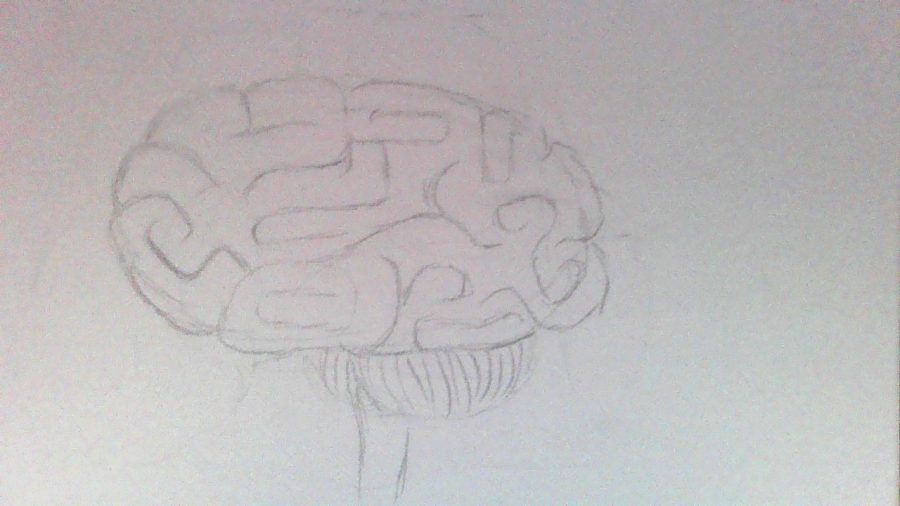Dementia Don’t Forget to Learn About It
Have You Ever Had A Loved One With Dementia?
Dementia is a disorder that affects the brain. There are over 400 types of dementia. The ones that are going to be talked about are Alzheimer’s Disease, Vascular Dementia, Frontotemporal Dementia, and Parkinson’s Disease. Dementia is a term used to describe a group of symptoms affecting your memory, thinking, and social abilities.
Alzheimer’s Disease
The brain shrinks healthy as you age but does not lose neurons, but with Alzheimer’s many neurons stop functioning and lose connection with other neurons, then die. It disrupts the natural processes of neurons and their networks. This disorder will later affect the cerebral cortex, which is responsible for language, reasoning, and social behavior. Over time the persons would lose their ability to function. The name of this condition is very misleading. Alzheimer’s is not a disease; it is a neurocognitive disorder.
The causes for Alzheimer’s are age, family history, Down Syndrome, head injuries, and Cardiovascular disease. With age every 5 years after 65, the chance of getting Alzheimer’s will double. About 1 in 20 people under the age of 65 will develop Alzheimer’s. Family History is important to know the risk of passing down the gene for Alzheimer’s is much higher. People with Down Syndrome are at a higher percentage of developing Alzheimer’s. People who have had severe head injuries are also at a high risk of developing Alzheimer’s. People with cardiovascular disease are also at a higher risk.
There are 3 types of symptoms: Early symptoms, Middle stage symptoms, and late symptoms. In the early stages of Alzheimer’s, the person will just forget small things. The Early symptoms are forgetting recent conversations, misplacing items, forgetting names of places and objects, having trouble thinking of the right word, asking questions, continually, showing bad judgment or finding it hard to make decisions, becoming less flexible, and not wanting to try new things. During the middle stage of Alzheimer the person will have more memory problems. The symptoms are Increased confusion. Impulsive, obsessive or repetitive behavior, delusions or feeling paranoid and suspicious about family members or people caring for them; problems with speech, mood changes, difficulty judging distances, hallucinations. With late symptoms, the symptoms become increasingly severe. Symptoms include dysphagia (difficulty swallowing or eating), difficulty changing positions, weight loss (can be severe in some cases), unintentional passing of urine or stools, gradual loss of speech, and significant problems with the short and long term memory. In this part of Alzheimer’s, the person may need full-time care, and have assistance with moving, eating, and personal care. (Picture below of difference between normal brain and an Alzheimer brain).
Vascular Dementia
Vascular dementia is caused by reduced blood flow to the brain. It gets worse over time but can be slowed down. Vascular dementia can happen after a stroke blocks an artery to your brain.
The causes for Vascular dementia are strokes, brain hemorrhaging, narrow or chronically damaged blood vessels. When a stroke happens something blocks a blood vessel to the brain or when a blood vessel bursts. Brain hemorrhaging is when there is bleeding between the brain tissue and skull. Conditions that cause your blood vessels to narrow or inflict long-term damage on your brain blood vessels can lead to Vascular dementia.
The symptoms for Vascular dementia are Confusion, trouble paying attention, less able to organize thoughts or actions, less able to analyze a situation then making a plan and communicating that plan to others, thinking slowly, difficulty organizing, memory problems, restlessness or agitation, depression or apathy. (Picture of difference between normal brain and an brain with Vascular dementia below).
Frontotemporal Dementia
Frontotemporal Dementia is an uncommon type of dementia that affects behavior and language. This type of dementia can start at 45-65 years old. This type of dementia affects the front and side of the brain.
The cause of Frontotemporal Dementia is there are abnormal clumps of protein in the brain. The clumps of protein usually affect the function of the front lobe and side lobes of the brain, which control the behavior and language of the person.
The symptoms of Frontotemporal Dementia include Behavior and personality, Language, Mental ability, and Physical problems. The behavior and personality problems are being rude or insensitive, acting impulsively, seeming subdued, losing interest in people and things, loss of inhibitions, acting rashly, losing motivation/drive, inability to be empathetic, repeating behaviors (like humming, hand-rubbing, foot-tapping, or routines like walking the same route over and over), change in food preferences, compulsive eating, neglecting personal hygiene. People with this may become socially isolated and withdrawn. Language problems would be using words incorrectly, like calling a sheep a dog, loss of vocabulary, repeating a phrase, slow speech, difficultly making words sound correct, hesitant speech, getting words in the wrong order, automatically repeating things other people had said. Some people will lose the ability to speak slowly and become mute. Problems with mental ability could include difficulty working things out, poor planning, easily distracted, poor judgment, poor organization, needing to be told what to do, thinking in a rigid way; difficulty recognizing familiar people or objects, thinking in an inflexible way. Memory difficulties. Physical problems will come in later stages but will be slow movement, difficulty swallowing, loss of control of bladder, loss of bowel control and stiff movements.
Parkinson’s Disease
Parkinson’s disease is a condition in which parts of the brain become damaged. The symptoms will be very slow to be seen but will progress. There are medications that will improve the life of a person with Parkinson’s.
The cause of Parkinson’s disease is genetics. There are a number of factors that increase a person’s risk of developing Parkinson’s. But it is unclear how exactly some people are more susceptible to this condition. Parkinson’s can run in families as a result of faulty genes that are passed down from parents. It is a rare disease to be inherited this way.
The symptoms for Parkinson’s disease are 3 main symptoms: tremors, slowness of movement, and muscle stiffness. But there are physical, cognitive/psychiatric symptoms . The physical symptoms are balance problems, nerve pain, loss of sense of smell, problems with peeing, erectile dysfunction, constipation, sexual dysfunction, dizziness, blurred vision, fainting, excessive sweating (hyperhidrosis) swallowing difficulties (dysphagia), problems sleeping (insomnia). The cognitive/psychiatric symptoms are depression, anxiety, slight memory problems, problems with activities that require planning or organization. (Picture of difference between normal brain and an brain with Vascular dementia below).
Your donation will support the student journalists of Brunswick High School. Your contribution will allow us to purchase equipment. Our goal is to purchase some updated and much needed cameras for the program.



































